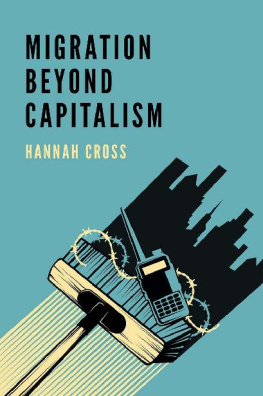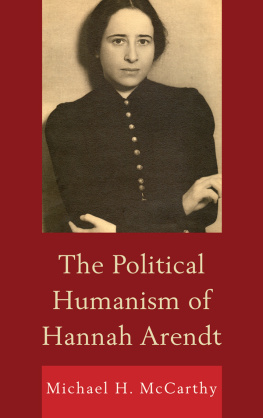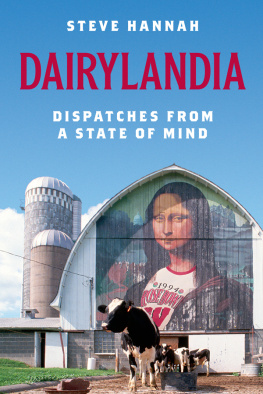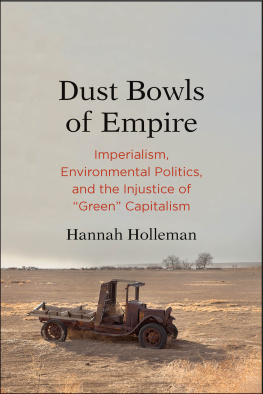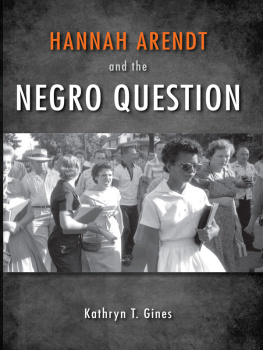Copyright Hannah Morgan Cross 2021
The right of Hannah Morgan Cross to be identified as Author of this Work has been asserted in accordance with the UK Copyright, Designs and Patents Act 1988.
First published in 2021 by Polity Press
Polity Press
65 Bridge Street
Cambridge CB2 1UR, UK
Polity Press
101 Station Landing
Suite 300
Medford, MA 02155, USA
All rights reserved. Except for the quotation of short passages for the purpose of criticism and review, no part of this publication may be reproduced, stored in a retrieval system or transmitted, in any form or by any means, electronic, mechanical, photocopying, recording or otherwise, without the prior permission of the publisher.
ISBN-13: 978-1-5095-3596-5
A catalogue record for this book is available from the British Library.
The publisher has used its best endeavours to ensure that the URLs for external websites referred to in this book are correct and active at the time of going to press. However, the publisher has no responsibility for the websites and can make no guarantee that a site will remain live or that the content is or will remain appropriate.
Every effort has been made to trace all copyright holders, but if any have been overlooked the publisher will be pleased to include any necessary credits in any subsequent reprint or edition.
For further information on Polity, visit our website: politybooks.com
Preface and Acknowledgements
This book emerged out of the events of 201516: Europes panic over migrants and the rightward trajectories of the UK and the US. But what really influenced the idea was the sense of an ending to the neoliberal consensus and, with this, new conversations about what was to come next. In the previous decade, focusing on migration between West Africa and Europe, I had analysed a global regime of what I term unfree labour mobility emerging in the contradictions between displacement, border regimes, labour markets and underdevelopment. To ask what is to be done? about vast displacement and ecological destruction, overexploitation of labour, racialized labour markets and militarized borders seemed insurmountable even five years after the global financial crisis of 2008. The British Left had been crushed in spirit and in organizing power by a so-called Labour government actively hostile to core socialist principles of economic democracy and international solidarity. A socialist programme for migration was barely imaginable.
A concept of migration beyond capitalism would be far-fetched without the new advances of the Left into politics and without broadened public debates about the possibility and urgency of another world, with bold new initiatives and programmes. The serendipitous rise of Jeremy Corbyn as Labour leader dramatically reversed the roles of the Left as a protest movement and the neoliberal centre as the problem-solvers, while Labours 2017 manifesto revealed the rapid inventiveness that could emerge in an expanding political space.
The transformation of the Labour Party, however limited and brief, opened up possibilities for more radical interventions from a reinvigorated Left, yet unfortunately many of these interventions imply that the same contradictions of labour and capital, the same national chauvinisms, the same racialized global hierarchy of so-called developed and developing countries, and the same roots of fascism will be carried into the post-neoliberal future. If we are to talk of the need for a radical new economy and politics, we can and must think beyond the imperial division of the world; we must encompass the globalized labour force and all whose livelihoods depend on it. Without this, no programme can call itself socialist or offer a road map beyond capitalism.
Mystifications of the globalized nature of production and its social relations have made, to use Rosa Luxemburgs words, empty utopias of many programmes from Northern progressive think-tanks and leftist thinkers. They have a thin concept of world development, and see the world in universalist abstraction, drawing on bourgeois economics; but they lack the revolutionary theory that would be needed to make sense of a more concrete understanding of the world, and that would fully integrate the anti-imperial and antiracist interests that are at the heart of the reinvigorated labour movement. Hence, those I am grateful to for popularizing notions of socialist transformation in the imperial centre have also become the subject of criticism in many elements concerning the migration regime and its wider consequences for all working people. It is not only that the reinvention of the labour movement lacks sufficient integration of internationalist content, but also that it risks consolidating the structural harms that have been forced upon the labouring classes throughout the world in the history of capitalism.
While this book does identify some remedial policy measures that could be promoted in the current political conjuncture, it also suggests approaches for advocacy politics, the labour movement and related institutions in the media and education that have developed pathbreaking campaigns but can also present contradictory arguments that keep migration politics at an impasse. This book considers directions for migration on the basis of a world-historical understanding of capitalism. There is no better basis for thinking of the relations between class, race and the nation than the insights from Marx and from revolutionary thinkers and actors like Rosa Luxemburg and Lenin, Walter Rodney and Samir Amin, all of whom pressed for the careful treatment of such questions and warned against a mechanistic and universal application of Marxist analysis. Benjamin Selwyns labour-centred approach to development has also been a major influence, while around the world, radical political economy research is not only condemning neoliberalism but is also proposing and debating alternatives. I cannot speak for any of these intellectuals in the particular place and time of this book, but consider their methodologies and political imperatives to make the most constructive contributions to a concept of migration beyond capitalism.
Thank you to George Owers and Julia Davies from Polity, Paolo Novak and Adam Hanieh at the SOAS Centre for Migration and Diaspora Studies, and colleagues at the University of Westminster, including Graham Smith, Dibyesh Anand and Paulina Tambakaki. Some of the ideas and content for the book were advanced in an earlier collaboration with Don Flynn focusing on the British Labour Partys approach to immigration. Before this, many of the underlying concepts developed in dialogue with Lionel Cliffe up to his death in 2013. I am grateful to Benjamin Selwyn, Ron Hayduk, Debby Potts, Dan Greenwood, Ray Bush, Colin Stoneman, Elisa Greco and Leo Zeilig for their comments on the proposal and draft chapters. In additional research for the book, thank you to Fabian Georgi, to Thomas Sablowski and Alex Demirovic at Rosa Luxemburg Stiftung, Sabrina Zajak and Elias Steinhilper at DeZIM Institut, and to Bjrn Aust. Thank you finally to Will Yong, Bettina Engels, Clare Smedley and Steve Kibble for their generous time and support.

